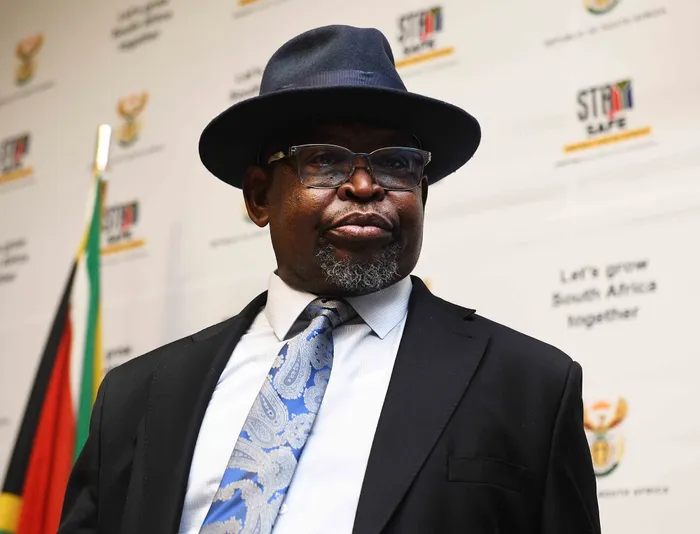Calls mount for progressive budget as Godongwana prepares for budget speech

As Finance Minister Enoch Godongwana prepares to deliver the national budget on Wednesday, there is growing pressure
Image: Independent Newspapers
As Finance Minister Enoch Godongwana prepares to deliver the national budget on Wednesday, there is growing pressure for a fiscal plan that prioritises economic growth, job creation, and strengthening of social support systems.
This will be Godongwana’s third attempt at presenting the budget, following previous challenges largely due to disagreements over a proposed 2% increase in Value Added Tax (VAT).
The proposed increase faced significant opposition from various parties and civil society organisations, including the Democratic Alliance (DA), which argued that the VAT hike would disproportionately harm the poor.
However, Godongwana insisted that the VAT increase was necessary for the government to fund critical frontline services, such as teachers and doctors, which are essential to the functioning of the country.
Ahead of the budget on Wednesday, the Congress of South African Trade Unions (COSATU) has called on the minister to present a budget that addresses the nation’s pressing socio-economic challenges.
"The working class and the country at large are battling numerous dire socio-economic crises and need government to table a bold, progressive budget that will capacitate the state to deliver the quality public services that society and the economy depend upon, stimulate badly needed growth, slash unemployment to generate the revenue the state requires, and provide relief to the unemployed while the economy picks up," said COSATU’s Parliamentary Coordinator, Matthew Parks.
Advocacy group Black Sash’s Head of Communications, Oliver Meth, said that the current R370 monthly Social Relief of Distress (SRD) grant was inadequate and called on the government to commit to a permanent Basic Income Support mechanism for unemployed adults.
"What we need is a clear political and fiscal commitment to a Permanent Basic Income Support mechanism for those aged 18 to 59 with little to no income. It’s time to move beyond temporary solutions. We want to see budget allocations that reflect a progressive realisation of the right to social security for all — especially those currently excluded," Meth said.
"There are also concerns about how this budget may deepen inequality. When the bulk of fiscal consolidation falls on the poor — through stagnant social grants, underfunded basic services, or regressive tax shifts — the gap between rich and poor only widens."
Meanwhile, the Organisation Undoing Tax Abuse (OUTA) hopes the government will announce meaningful spending cuts and improved efficiencies, particularly with regards to struggling state-owned enterprises (SOEs).
"Reforms to reduce expenditure and cut wasteful spending in many areas of government, particularly those highlighted by Treasury’s recent spending reform exercises, are needed but have yet to be actioned. In addition, the AGSA has highlighted many opportunities for wasteful expenditure in their numerous reports over the past few years," OUTA’s Chief Executive Officer, Wayne Duvenage said.
"Hopefully, we will also start to see some rationalisation in the size of government, starting with eliminating two deputy ministers in many departments, and possibly even cancelling the need for a deputy minister at all in some areas."
Duvenage also expressed hope for stronger collaboration between the Government of National Unity (GNU), business, and civil society on a revised fiscal plan that tackles economic challenges, enhances social support, and boosts investor confidence.
Build One South Africa (BOSA) called on Godongwana to resist presenting a budget that signals no positive change, and instead boldly prioritise economic growth, job creation, and fiscal responsibility to kickstart progress and change.
"It would be irresponsible of the Minister – and the government – to ignore or misread the national mood. It is one of struggle and a great thirst for change. Some South Africans are barely getting by, while others are not. The cost of living is soaring.
"Whether it be food, transport, electricity, school fees, or bond repayments and rent, citizens are in a tight bind. The April 2025 Household Affordability Index reports that the basic food basket now costs R5,420.30, while a third of petrol prices are made up of government taxes and levies.
"Household debt is rising, inflation is driving up bond and rental costs, and economic growth remains stagnant. The choices made in this budget must reflect the urgent realities of our people," BOSA said.
mthobisi.nozulela@iol.co.za
IOL Business